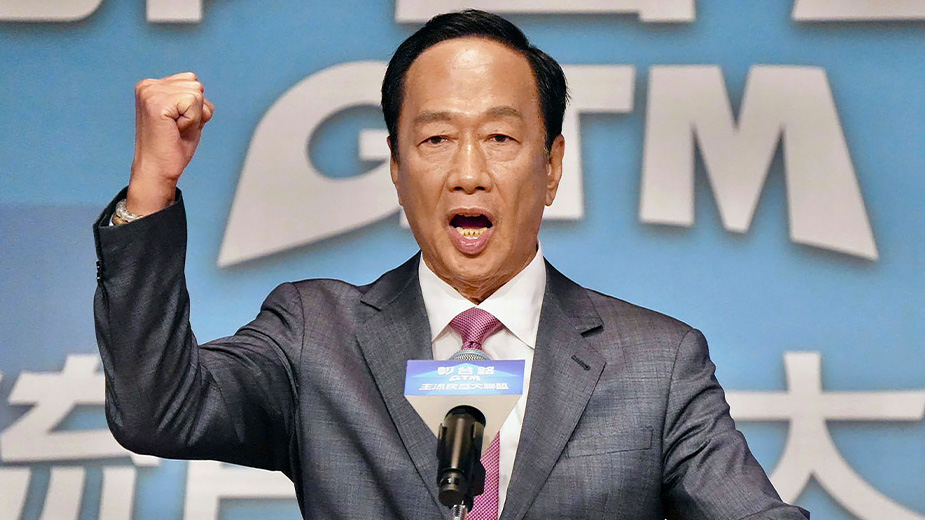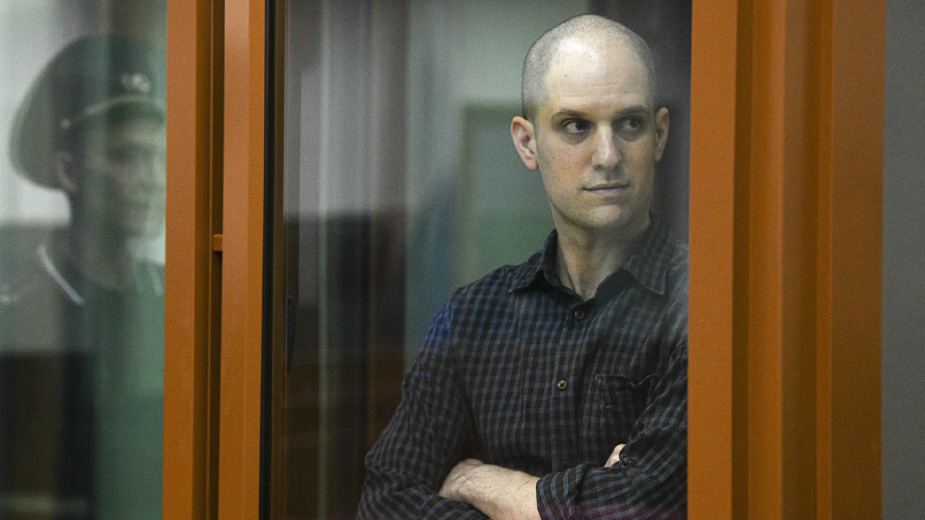Foxconn’s Terry Gou to Seek Taiwan Presidency as Independent
By HUIZHONG WU Associated Press
TAIPEI, Taiwan (AP) — Terry Gou, who founded Apple supplier Foxconn, said Monday he will run as an independent candidate in Taiwan’s presidential election, ending months of speculation.
At a news conference, Gou criticized the governing Democratic Progressive Party, saying its policies have “brought Taiwan into the risk of war” with China, which claims the self-ruled island democracy as part of its territory.
“I will definitely not allow Taiwan to become the next Ukraine,” he added.
He said Taiwan also needs new approaches on the economy and other matters at home.
“Domestically, the national policy direction is filled with all sorts of mistakes. There’s no way to solve the difficulties of Taiwanese industry and people’s livelihoods,” he said.
Gou’s Foxconn, formally known as Hon Hai Precision Industry Co., is a major supplier to Apple and has many factories in China that manufacture iPhones.
Ideologically, Gou is most in line with the Kuomingtang, the opposition party that is friendly to China. The party holds that Taiwan and China are part of one country, called the Republic of China. The Kuomingtang ruled over China in the early half of the 20th century before they lost a civil war to the Communist Party. They retreated to Taiwan in 1949, where they vowed to one day retake the republic.
Gou has long had presidential aspirations. He lost in the Kuomingtang primary in 2019 and tried again this year, but the party selected New Taipei City Mayor Hou Yu-ih as its candidate. Back in May, Gou said on his Facebook page that he would support Hou’s candidacy.
Experts say Gou is unlikely to become a frontrunner.
Gou’s speech emphasized unity because he has received criticism that he was splitting the vote, Hsiao Hsu-Tsen, a former deputy secretary-general of the presidential office who often comments on Taiwanese politics. This decision to run – “It’s a demonstration of his political power.”
Since he is running without the backing of a major political party, Gou must gather public signatures to qualify for the ballot.
That is a high barrier to meet, as it requires 1.5% of the voting population in Taiwan, which is about 290,000 signatures, said Yeh-lih Wang, a professor of politics at National Taiwan University.
The other candidates for the Jan. 13 election are former Taipei city mayor Ko Wen-je of the Taiwan People’s Party and current Vice President Lai Ching-te of the ruling DPP. Incumbent President Tsai Ing-wen is serving her second term in office and cannot seek another.
Currently, Lai is the front-runner, with Ko and Hou trailing in various polls.
Gou meanwhile has never garnered more than 20% of support in polls that pit him against the other three, said Wang, the political science professor.
“He always thought that he could be the one who would unite the opposition,” though that’s unlikely, Wang said.
Gou said he felt he has something to contribute on the issues that matter to Taiwan’s people.
“I have not seen substantive discussions of policy recently, especially on the topics of cross straits relations (with China), economic development or international relations,” he said.
Gou said he would work for Taiwanese society’s unity because unity was critical to Taiwan’s future.
Pictured at top: Terry Gou, the billionaire founder of Foxconn, speaks during a press conference in Taipei, Taiwan, on Aug. 28, 2023. (Kyodo News via AP)
Copyright 2024 The Associated Press. All rights reserved. This material may not be published, broadcast, rewritten or redistributed.



